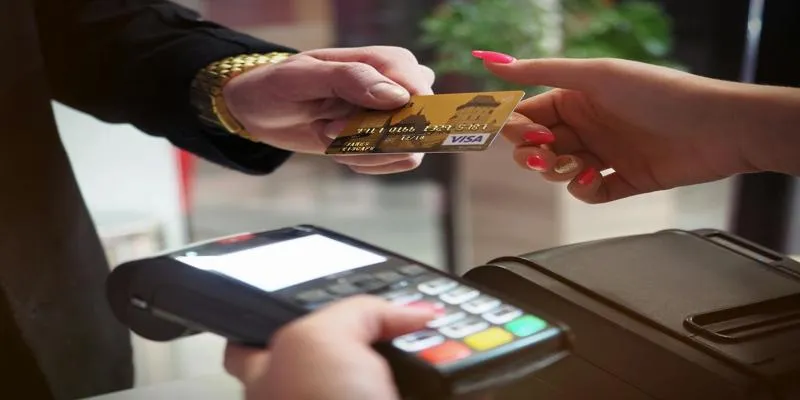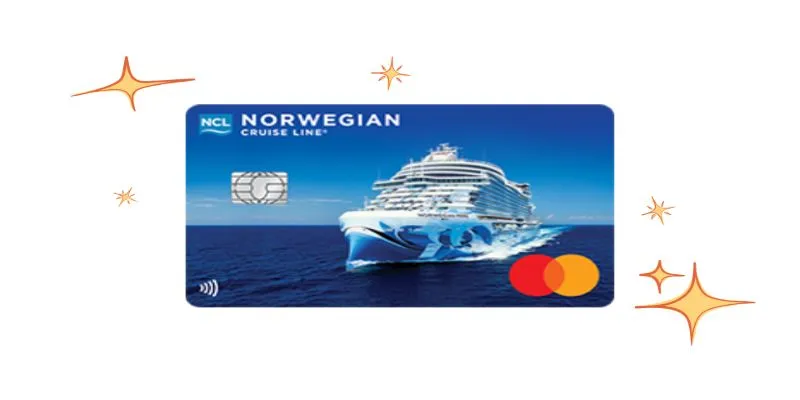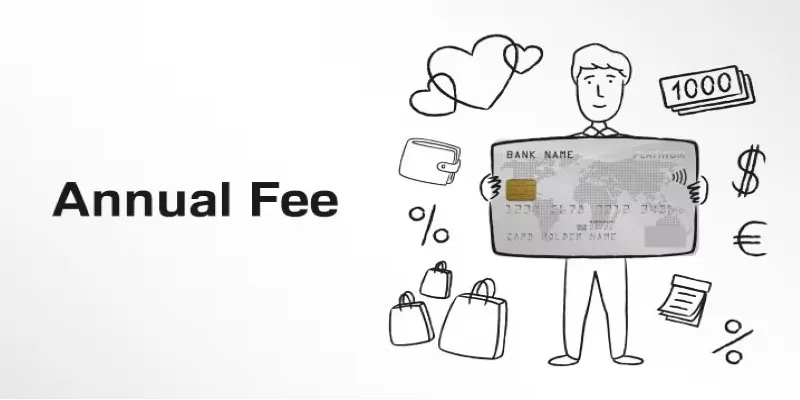Credit Score Requirements for Different Credit Card Tiers and Best Credit Cards to Get
Navigating personal finance involves understanding the crucial role of your credit score to get a credit card. Simply put, it’s a numeric representation of your creditworthiness that impacts your financial opportunities. As you delve into the credit card realm, questions may arise about the minimum credit score to get a credit card and the possibility of getting a card with a less-than-perfect credit score.
This article aims to demystify credit scores, offering insights and practical guidance on obtaining and managing credit cards across different credit profiles. Whether you’re considering easy credit cards to get with a 600 credit score or aiming for an Apple Card, this article is for you. Join us on this informative journey through credit scores and card eligibility.
Understanding Credit Score
In the intricate web of personal finance, credit scores are a numerical representation of an individual’s creditworthiness. As one ventures into the world of credit cards, loans, and mortgages, understanding the nuances of credit scores becomes not just advisable but imperative. Let’s embark on a comprehensive exploration, unraveling the components, ranges, and impact of credit scores to get a credit card on financial landscapes.
Components of a Credit Score
Your credit score is crafted from various financial behaviors. The five key components and their respective weightings in the FICO scoring model are:
- Payment History (35%): The track record of making payments on time is the most influential factor here. Late payments, defaults, or bankruptcies can significantly lower your score.
- Credit Utilization (30%): This ratio reflects the amount of credit you use compared to your total available credit. Keeping this ratio low demonstrates responsible credit management.
- Length of Credit History (15%): The age of your credit accounts matters. A longer credit history is generally favorable, showcasing a more extended period of responsible credit use.
- Types of Credit in Use (10%): A diverse credit portfolio, including credit cards, mortgages, and installment loans, is beneficial.
- New Credit (10%): Opening multiple credit accounts quickly can be perceived as a risk. Further credit inquiries and recently opened accounts can have a temporary negative impact.
Understanding how each factor contributes to your overall score is pivotal in making informed decisions about your financial behavior.
Credit Score Range

Credit scores typically range from 300 to 850, with higher scores indicating better creditworthiness. The breakdown often includes:
- Poor (300-579): Individuals in this range may struggle to secure credit, and if approved, they might face higher interest rates and less favorable terms.
- Fair (580-669): While more accessible, credit options for individuals in this range may still be limited. Building credit is essential to move into higher ranges.
- Good (670-739): Lenders consider individuals with good credit scores lower risk, making them eligible for a wide range of credit products with favorable terms.
- Very Good (740-799): Enjoying lower interest rates and more attractive terms, those in this range are highly favored by lenders.
- Excellent (800-850): Individuals with excellent credit scores are prime candidates for the best financial products and the most favorable terms.
Understanding your credit score is not just about the present but about securing a stable financial future. Whether you’re eyeing a mortgage, a car loan, or a premium credit card, your credit score is a key determinant. Armed with knowledge and a commitment to financial responsibility, you can chart a course toward long-term financial well-being.
Understanding Credit Score Requirements for Different Credit Card Tiers
When navigating the landscape of credit cards, individuals often grapple with questions about what credit score is needed to get a credit card. Eligibility for various types of credit cards can vary across different tiers. Let’s delve into the intricacies of the credit score to get a credit card.
Secured Credit Cards
Secured credit cards are a starting point for people with fair or poor credit. Users must put down a security deposit, and the credit limit is usually based on that deposit. This setup lowers the risk for the card issuer and gives users a chance to improve their credit. Secured cards typically have a lower required credit score to get a credit card , focusing more on the collateral than a perfect credit history.
Unsecured Credit Cards for Fair Credit
Going a step higher in the credit card ladder, unsecured cards for fair credit become relevant. Available to those with scores around 600, these cards are a bit stricter than secured ones but still help those with financial difficulties. While interest rates and rewards might not be as great as top- tier cards, these unsecured choices let users demonstrate responsible credit habits and boost their credit status.
Unsecured Credit Cards for Good Credit
Having good credit expands your options for unsecured credit cards with better terms. Usually requiring a credit score of about 670, these cards often offer improved rewards, lower interest rates, and higher credit limits. Lenders see people with good credit as less risky, making them more inclined to provide credit with favorable terms.
Unsecured Credit Cards for Excellent Credit
Leading the credit card lineup are unsecured cards for people with excellent credit scores, typically 750 or above. These cards come with top-tier perks like exclusive rewards, excellent customer service, and access to elite benefits. Lenders see those with excellent credit as low-risk borrowers, rewarding them with the best terms and benefits.
Understanding the nuanced credit score to get a credit card and the additional factors influencing approval is crucial to navigating the complex world of credit. By building a positive credit history, maintaining financial stability, and demonstrating responsible credit behavior, individuals can enhance their chances of securing credit cards that align with their financial goals and aspirations.
Best Credit Card to Get with a Low Credit Score
For individuals with a credit score around 600, accessing credit cards may seem challenging, but there are options tailored to their needs. Here are examples of the best credit card to get with a low credit score range, along with the advantages they offer:
Capital One Secured Mastercard
- Cashback Rewards: Despite being a secured credit card, the Capital One Secured Mastercard provides cash-back rewards on purchases, adding a positive incentive for cardholders.
- No Annual Fee: This reduces the cost of ownership, making it a budget-friendly option for those focused on credit building.
Discover it® Secured
- Cashback Match Program: Discover it® Secured offers a unique feature where the cashback earned in the first year is matched, doubling the reward potential.
- Cashback Rewards: Cardholders earn cashback on everyday purchases, making it a rewarding option for those rebuilding credit.
Individuals with a 600 credit score have accessible options for credit cards that not only aid in credit building but also offer tangible benefits. Whether opting for a secured card with cashback rewards or exploring co-branded options, responsible card use can pave the way toward improved credit scores and increased financial flexibility. Additionally, understanding the credit score requirements for specific credit cards and acknowledging the variability in these criteria empowers individuals to make informed decisions on their credit journey.
Credit Score to Get an Apple Card

The Apple Card, a collaboration between Apple and Goldman Sachs, combines technology and financial accessibility for Apple ecosystem users. While specific credit score to get Apple Cards aren’t publicly disclosed, it’s advisable to have a credit score of 670 or above for better approval odds. However, creditworthiness isn’t solely based on the score; factors like income and credit history also matter. You can easily apply for the Apple Card through the Wallet app, where a pre-qualification check lets you assess eligibility without affecting your credit score. Beyond its tech appeal, the Apple Card is a financial tool promoting responsible credit management in today’s evolving financial landscape.
Strategies to Secure a Credit Card with No Credit History
While it is a challenging endeavor, there are alternative strategies that individuals can employ to kickstart their credit journey. Here are several approaches to the question “How to get a credit card with no credit score? “:
Become an Authorized User
- Method: Add your name to a family member’s credit card account as an authorized user.
- Advantage: Gain access to the credit history of the primary account holder, potentially benefiting from their positive credit behavior.
Apply for a Student Credit Card
- Method: Apply for a credit card designed specifically for students with limited or no credit history.
- Advantage: Geared toward individuals in educational institutions, these cards recognize the unique financial situation of students.
Takeaway
Successfully navigating a credit score to get a credit card requires a thoughtful and informed approach. Whether you’re looking to get a credit card with a fair credit score or exploring options with no credit history, understanding the ins and outs of credit scores is crucial. By following practical tips for credit improvement and considering cards designed for specific credit profiles, you can access vital financial tools.

Responsible credit management isn’t just about getting credit; it’s a journey toward financial empowerment and stability. Armed with knowledge of the credit score to get a credit card, you can make informed decisions and set the stage for long-term financial success.











